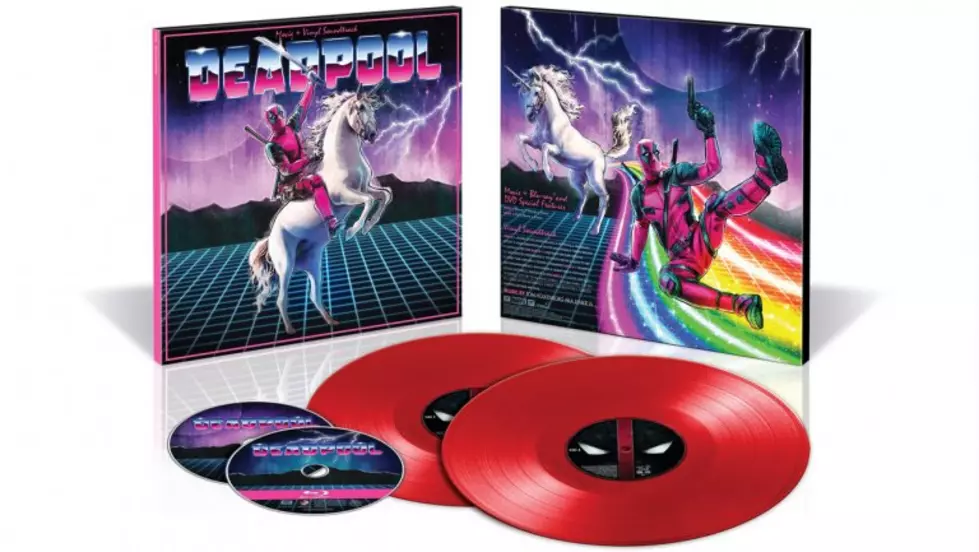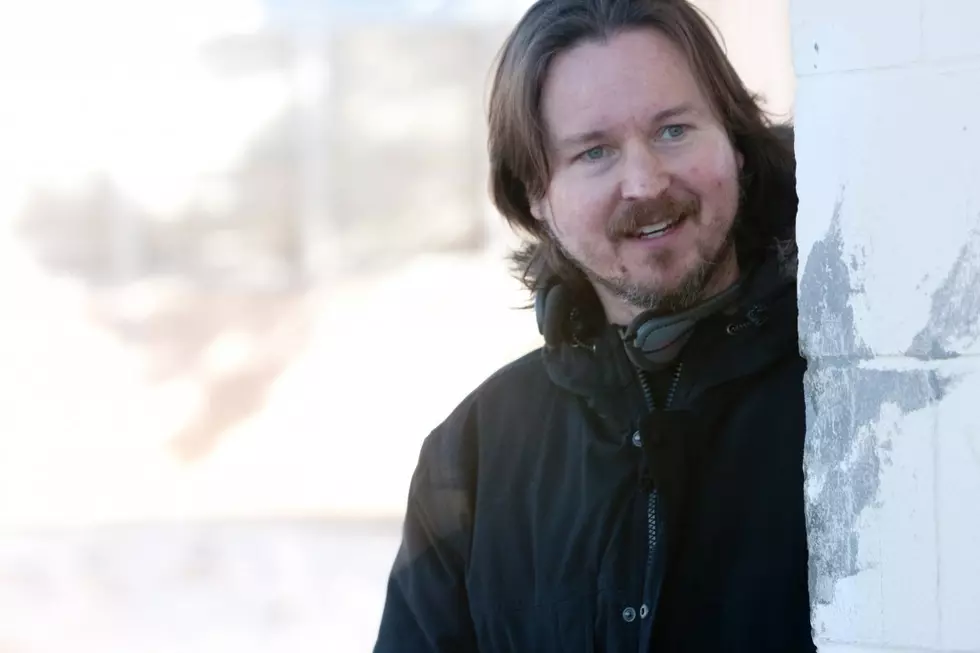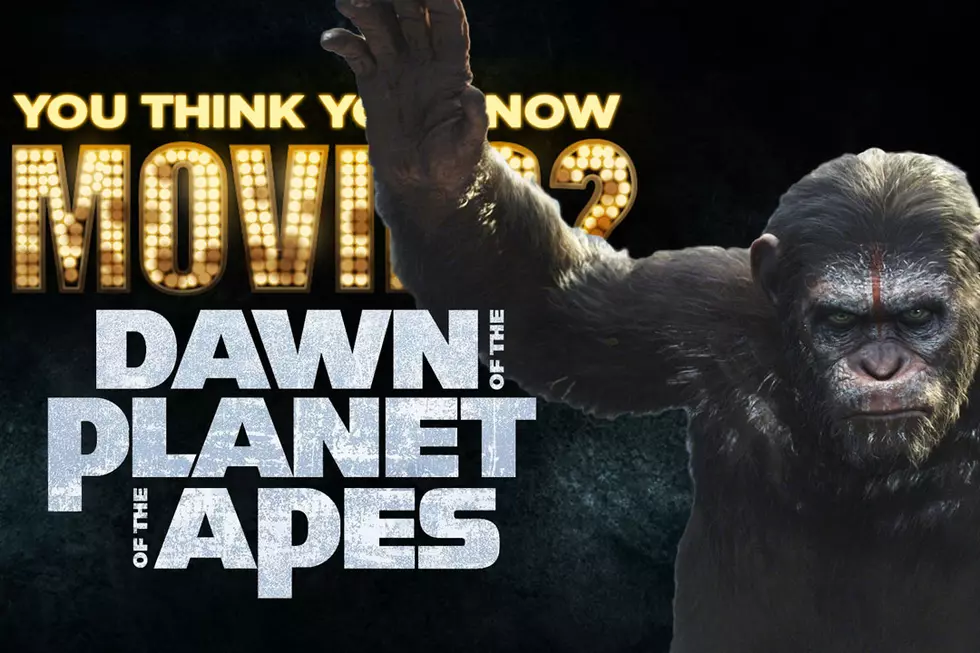
‘The Gambler’ Director Rupert Wyatt Reveals What His ‘Dawn of the Planet of the Apes’ Would Have Been
In 2011, there was an assumption that Rupert Wyatt’s ‘Rise of the Planet of the Apes’ was going to be a box office bomb. First, Tim Burton had tried to revive the franchise, but was met with a critical failure. Then the star of ‘Rise,’ James Franco, told Playboy, “Critics will be out to kill this movie and blame me for it just because they are out to kill me." Adding to this narrative, Fox didn’t screen ‘Rise’ for critics until just before the release of the film theatrically. If you add all of this up, it usually means certain doom. ‘Rise of the Planet of the Apes’ scored an 82% “fresh” rating on Rotten Tomatoes and earned just under half a billion dollars worldwide, which of course spawned a sequel, ‘Dawn of the Planet of the Apes’ … but then, mysteriously, Rupert Wyatt didn’t return to direct that sequel.
Wyatt is promoting his new film, ‘The Gambler,’ a remake of the 1974 movie that honestly doesn’t have much in common with that movie other than a title. Wyatt’s ‘The Gambler’ stars Mark Wahlberg as Jim Bennett, a nihilistic literature professor who seems determined to hit rock bottom with his gambling until it starts affecting the people he cares about—most notably, a student of his named Amy (Brie Larson).
‘The Gambler’ is certainly a departure from a ‘Planet of the Apes’ movie, which is what Wyatt seems excited about. Though he admits he was at one point attached to direct the sequel, ‘Dawn of the Planet of the Apes,’ but he and the studio couldn’t come to an agreement on the story. What was Wyatt’s version of the sequel? Wyatt claims he’s never told anyone before, but, ahead, he reveals what his intentions were for the sequel, including a tie-in with the original 1968 movie.
After ‘Rise of the Planet of the Apes,’ did you have your choice of what you wanted to do next? Is that what led to ‘The Gambler’?
I don’t think it is true. I mean, look, it was wonderful that I got that critical and commercial success and all of that. I was lucky. In a funny sort of way, it makes life more complicated.
That’s not always a negative.
On the one hand, you’re encouraged to plow the same ground and make another tent pole. In the case of ‘Apes,’ I really wanted to do the sequel and I spent a lot of time working on it.
Why didn’t you do the sequel?
Because we just had a different opinion of the script.
What did you want to do?
The thing is, with ‘Apes,’ it was never my franchise. It was something I came onto. It was the original blockbuster. So who am I, in some ways, to want to wrest control of it?
But you reignited the franchise when someone like Tim Burton couldn’t.
Well, yeah, but there are all sorts of reasons why we succeeded and they didn’t. Financially, Tim Burton’s film was a great success. It just critically didn’t go down well.
And, with yours, people wanted more.
I don’t know the ins and outs of why that is, but I would say, overall, science fiction works when it’s a reflection on who we are … and I would say, watching the Tim Burton film and setting it on another planet, even though that was what Pierre Boulle set out to do originally with the original book—clearly that’s why Tim Burton went in that direction—I don’t think it had the same resonance, at least for me, and relevance.
With the sequel, ‘Dawn of the Planet of the Apes,’ did you think some of that was being taken away?
It’s complicated. The process is exhausting, but we’re not breaking rocks here, it’s a nice life to have.
But your name is still on it.
The responsibility is such that, if it doesn’t work, it’s on your shoulders … Having gone through it once, I thought, OK, the foundations upon which I want to tell the story of the sequel, I really want to be across that—I don’t want to come on to another speeding train. I don’t want to be handed a script and reverse into it. So, therefore, I built a very clear framework with a screenplay that didn’t differ, ironically, that much to what ultimately what was made. It still explored the notion of civil war after the revolution and the idea of conflict between Caesar and Koba.
Would it have been a whole new cast, like we saw in the finished film?
It dealt with seven years after the virus. So, similar timeline. I’ve never actually told anybody this, so you’re the first person I’ve told [laughs]. You’re my last interview, so why not? The idea is that after seven winters, the apes have got to a place where they cannot survive in the woods anymore. So, therefore, they need to break free. They’re overpopulated living in the woods; they can’t exist there. They’ve moved beyond that as a species. So, it of course brings them back into the city. And Caesar realizes what that means, which it’s going to bring them back into conflict with the human survivors of the virus.
That’s the opposite of what we saw in ‘Dawn.’ The humans come to the Apes for help with accessing a dam.
It was told very much from the perspective of the apes, but there were a lot of human characters. Both the mutes…
The mutes? From the original 1968 movie?
I wanted to make sense of the original ‘Planet of the Apes,’ why the humans were mute. We perfectly set up the notion that the virus had side effects with the survivors, so therefore the offspring—the children of the survivors—had lost the power of speech. So, we had a young girl who was mute.
Did you plan on bringing James Franco back? You had filmed that death scene with him in ‘Rise’ that had been cut.
We were going to bring James back on the basis of a video. We shot a death scene, but it was just too much of a downer. It was much better that they had a parting of the ways as equals. But, no, he definitely died of the virus. That was clear. They all died. But, he was going to be a voice from beyond the grave. He was going to be in a video that Caesar finds.
Which happens in the finished ‘Dawn.’
I think Caesar found old test footage, or the home video footage that Will had shot. In the script I had, we were going to have a specific message from Will to Caesar knowing that Caesar would eventually come back to the house.
And that leads to a remake of ‘The Gambler.’ I do wonder how many people said to you at first, “The Kenny Rogers song and movie?”
Being British, I think I was one of the few who didn't know who Kenny Rogers was! [Laughs] I mean, of course I did. But, look, I came to it from the script.
Your 'The Gambler' is very different than the ’74 version.
I didn’t set out to emulate that film. That’s much more the study of addiction.
Did you ever consider just giving it a new title?
No, because the way these things go, Paramount made the original and their intention was to remake it. What we do as filmmakers is, obviously, therefore, up to us. Bill Monahan is one of those very individual writers and, more power to him, he was given this job and his initial MO from the get-go was, “I’m going to make the antithesis of this original.”
Professionally, doing a ‘Planet of the Apes’ sequel would have been nice, but the case can be made that you had done that and doing ‘The Gambler’ widens your spectrum.
Hopefully. I wanted to do this film to get better as a filmmaker.
I don’t think I’ve ever heard a director say it quite that way before.
It’s a bizarre notion, because I’m doing it somewhat in the spotlight. And ‘Apes’ was a blessing and a curse, because it gave me a great deal of opportunity. But had that film not worked, I would have probably gone back to the independent world. And, in some ways, maybe that would have been great, too. Who knows? But it put me in a place where I had the opportunity to try certain things. I thought, at the end of the day, I might be better as a filmmaker with cause and effect now at narrative storytelling. They may be where my true calling is as a filmmaker: the more high concept genre form of storytelling. Even if I go back to tent pole filmmaking now, it’s a great set of tools to have now.
So making the ‘The Gambler’ can make you a better big budget movie director.
Well, yeah. Because I think it’s all about understanding character and understanding how characters can ultimately drive a scene, rather than the plot driving the character.
Do you consider yourself more of a character director who just happened to do a big budget science fiction movie?
I love science fiction and love what it can do for us and stories.
But it’s wasn’t your background.
When I was making ‘Apes,’ a lot of people were, “This guy had never made sci-fi, he’s never going to achieve anything.” And it’s just another form of storytelling. I love telling a story that has relevance to something else or relates to us as a species and there’s not really a better form of storytelling than sci-fi genre to do that. It’s interesting to me that sci-fi so rarely gets accolades in the awards season; there’s still a little bit of snobbery about it.
Which is odd, ‘Star Wars’ got a nomination for Best Picture.
Really? I didn’t know that.
But that was 37 years ago.
It allows a massive audience to come into a story because you’re telling a story in a landscape that has a universal appeal, but it still affords you the opportunity to tell very intimate stories.
Mike Ryan has written for The Huffington Post, Wired, Vanity Fair and GQ. He is the senior editor of ScreenCrush. You can contact him directly on Twitter.
More From ScreenCrush









